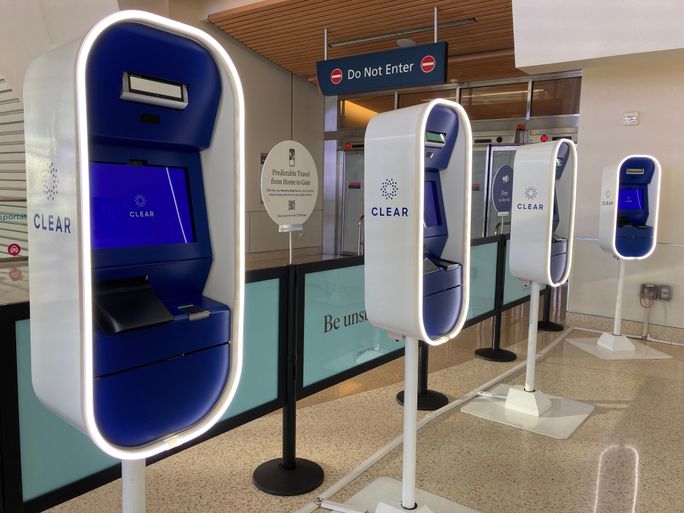(EditorˇŻs note:
A previous version of this story incorrectly stated that Sen. Janet Nguyen was
a supporter and author of this bill. She is not. The story has now been
corrected.)
Debates are
heating up among legislators over a bill thatˇŻs now making its way through the legislature,
the intent of which is to create a fairer and more streamlined experience at
TSA airport security queues.?
The bill, which
has already seen some amendments, proposes placing a moratorium on identity verification
service CLEARˇŻs expansion in California airports unless the company implements its
own dedicated security screening line.
For an annual fee
of $189, CLEAR subscribers are currently allowed skip often crowded TSA security
lines entirely. After scanning their boarding pass at a kiosk and confirming
their identity with an eye or fingerprint scan, members are swiftly escorted to
front of the queue by a CLEAR representative.
According to Sen.
Josh Newman, D-Fullerton, who introduced the bill, the aim is to ensure
fairness to all passengers. ˇ°This is not a great service, the way it
works right now, where people who pay are intersecting and causing friction
with the people who donˇŻt pay (CLEAR),ˇ± he told The Orange County
Register.?
Unlike TSA
Precheck, CLEAR does not expedite the actual TSA checkpoint screening process.
So, effectively, the serviceˇŻs members are just holding up all those who have
been standing dutifully in line because they canˇŻt or won't spend the extra money.

CLEAR kiosks at San Jose International Airport, California. (Photo Credit: Adobe Stock/MichaelVi)
Although certain
industry groups are opposing the measureˇŞmainly airlines for whom the CLEAR
program generates revenueˇŞothers are backing the new bill, including flight
attendants and TSA agents, who are affronted by the notion that passengers can
pay to cut in front of everyone else.
In its original
form, the proposed legislation intended to require CLEAR to establish and
operate its own TSA security lane by 2030 in order to continue operating at the
nine California airports where it currently has a presence. The overhauled bill
now seeks only to prevent CLEAR from expanding in the Golden State if it does
not meet this condition.
Critics have reportedly
said that itˇŻs unrealistic to expect the TSA to dedicate officers to a special
airport security screening lane, which would require federal approval to fund
and operate, since the TSA is a federal agency.
The revised bill
passed through the Senate Transportation Committee last week after an eight-to-four
vote. ˇ°A lot can happen in five years, including what will happen in terms of
security technology,ˇ± Newman said. ˇ°The goal was to provide that motivation.ˇ±
A spokesperson for
CLEAR told the OC Register, ˇ°We appreciate the opportunity to engage in a
robust discussion led by (Transportation Committee) Chairman Dave Cortese and
appreciate his leadership throughout this process,ˇ± adding, ˇ°After reviewing
the updated bill, weˇŻre confident CLEAR will be able to continue operations
with our existing airport partners in California.ˇ±
Newman clarified
that the billˇŻs aim was never to ˇ°terminateˇ± CLEARˇŻs presence in California.
Rather, it sought, ˇ°to compel CLEAR and other third-party screening services to
operate separate lines for subscribers, thereby eliminating the friction and
frustration caused by the current system.ˇ±
For the latest travel news, updates and deals, subscribe to the daily TravelPulse newsletter.
Topics From This Article to Explore